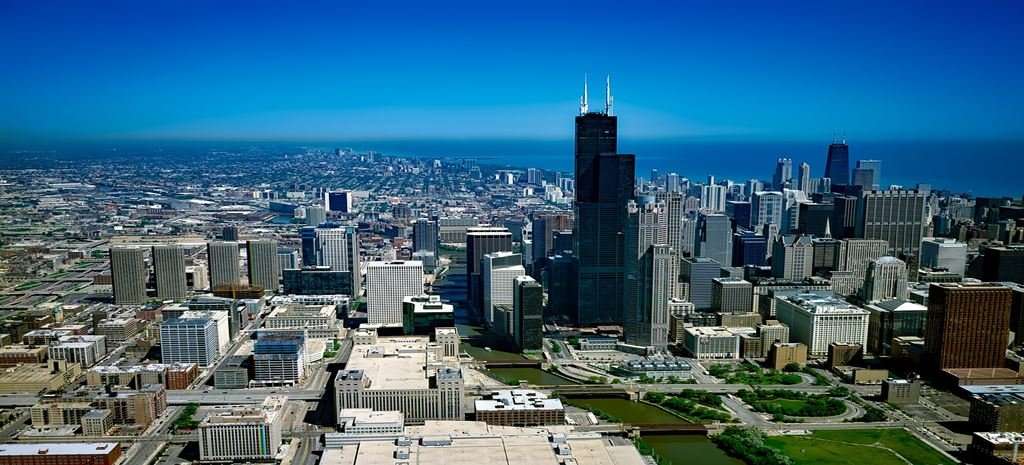Chicago, which has committed to power its 900 municipal buildings with 100 percent renewable electricity by 2025, has joined a seven-city collaboration to request price estimates for renewable electricity. The collaboration, led by Boston Mayor Marty Walsh, also includes Los Angeles, Houston, Portland, OR, Orlando, FL, and Evanston, IL.
The cities expect to issue a single request for information (RFI) to renewable developers later this summer. Mayor Walsh, who co-chairs the Climate Mayors network of more than 400 cities, has invited other cities to join in the RFI by submitting their “energy demand data.” Boston “continues to have ongoing conversations with cities that are highly interested in joining the initiative,” said Lauren Zingarelli of the mayor’s press office.
Most city-owned buildings are schools, and both Chicago and Boston will include schools’ use of electricity in the RFI. Boston’s mayor did not commit to meeting any given percentage of city government’s electricity demand with renewables, and did not ask other cities to make such a commitment.
Mayor Walsh highlighted benefits of the initiative including helping meet the Paris Climate Agreement and creating clean energy jobs. Los Angeles Mayor Eric Garcetti said “we can show the world that environmental stewardship and economic prosperity go hand in hand.” Houston Mayor Sylvester Turner noted that Houston is the “largest municipal user of renewable energy in the nation.” Portland Mayor Ted Wheeler spoke of “bringing our significant purchasing power to bear in the transition to a clean energy economy.”
Separately, the Los Angeles Department of Water and Power is researching the potential for converting to 100 percent renewable electricity; a study funded by a nonprofit group found that doing so would have zero net cost. A Massachusetts nonprofit has outlined a plan for Boston to convert to 100 percent renewables.
Will Driscoll, MPA, JD, is an energy and environmental policy analyst who has worked primarily for the U.S. EPA via the contractor ICF Consulting. His recent work is at SaveTheClimate.us.
The views and opinions expressed in this article are the author’s own, and do not necessarily reflect those held by pv magazine.

Wassayingboourns on June 21st, 2018 at 14:16 UTC »
The real heroes here are Orlando and Houston. It takes an massive load of energy to power those AC systems running 24/7 for 7 months straight.
Edit: I live in Florida. Please stop commenting the AC also is on for the other 5 months of the year. I know that already. I live here. It's just not in 24/7 during those months.
madmatt42 on June 21st, 2018 at 14:10 UTC »
One of these things is not like the other
One of these things just isn't the same
highflee1992 on June 21st, 2018 at 13:45 UTC »
I want to believe that cities will start offering tax breaks or incentives to building owners to cover their flat roof tops with solar panels. It makes logical sense to have solar panels els on all flat roof tops. Also, think of the L train having solar panels above the power lines. So much power!